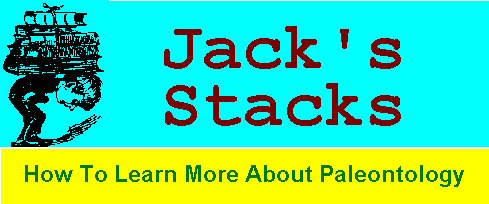
Ancestral Passions is more than a biography in that the fossil discoveries and interpretations are intimately interwoven with the family history. Ms. Morell presents the interpretation at the time of discovery and, with the aid of footnotes, advises the reader of the current interpretation. In reading this book you will not only learn a fascinating history of the most famous family in paleoanthropology, but you will also gain a better understanding of research into early human evolution.
Ms. Morell's four-page acknowledgement section lists countless people, including the Leakeys themselves, who were interviewed or otherwise helped in the research for this book. Morell points out that two individuals refused to be interviewed -- Donald Johanson and Tim White who made themselves famous for discovering Lucy (Australopithecus afarensis). It becomes obvious to the reader late in the book just why they did not want to be interviewed; their controversies with both Mary and Richard Leakey were infamous in the annals of paleoanthropology. The descriptions of events surrounding these individuals and the Leakeys reveals Johanson/White to have done some unethical things regarding the naming of new species and type specimen designation. Their actions indeed appear as if they were intentionally trying to discredit or at least push aside the Leakeys to advance their own careers.
Ancestral Passions does not place the Leakey family members on pedestals as it is somewhat of an "unauthorized" biography. Morell dredges up and reveals more than just the fossil skeletons in the family closets. Louis Leakey and later his son Richard had affairs which ended their first marriages; both second marriages endured. For the purpose of my review I'll just say this biography could make an HBO miniseries.
Louis became famous not only for his discoveries but also his drive. He had an unrelenting energy to reveal the secrets of human beginnings. In some ways this drive eventually took his life since he would not slow his pursuits when his health failed. Louis was the first to champion and later prove (to the best of our current knowledge) that man evolved in Africa. He was also instrumental in getting women recognized as worthy researchers and scientists; he is the individual who got Diane Fossey her start in gorilla studies and Jane Goodall in chimpanzee studies. Louis, it seems, was a better promoter than he was a scientist. He spent the majority of his time getting his expeditions funded. As a matter of fact, his wife Mary actually ran the digs at Olduvai Gorge making many of the most famous discoveries.
Mary Leakey is probably best known for her discovery of one of the most famous set of trace fossils ever found -- hominid footprints preserved in lithified volcanic ash. These are from the Laetoli site which preserved the tracks of many other animals as well. The hominid trackway is interpreted to have been made by a possible family - at least the three sets of tracks are different enough in size to make this at least plausible.
Richard was at odds with his father for much of his life, only patching things up merely weeks before Louis' death. For most of Richard's professional life he was headstrong and did not deal well with people. He was another Leakey driven to succeed at all costs. Richard was diagnosed with a terminal kidney ailment while in his twenties and given ten years to live, a fact he kept secret from everyone but his wife. In part his kidney condition was one of the driving forces making him push to achieve his goals in what he expected to be a short life. Virtually at the last minute, he received a kidney transplant from his brother Philip which has allowed him to live yet today.
Richard and Louis were both very pro-Kenya. I should note here that Louis and Richard were Kenyans, not British colonials. Each in his time did much to promote the nationalization of Kenya as well as to promote Kenyans themselves into leadership roles. Richard used monies he made on promotional tours to sponsor Kenyans in doctoral work in paleoanthropology and paleontology. Richard perhaps more than even Louis had powerful political influence in Kenya (much to the dismay of other workers in paleoanthropology).
Ancestral Passions has more going for it than a simple story of famous paleoanthropologists. I found this book hard to put down for many reasons. The people are fascinating, their lives complex, and their influence on science and Africa itself is far reaching.